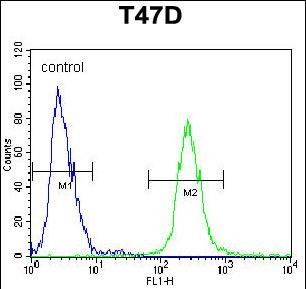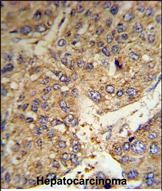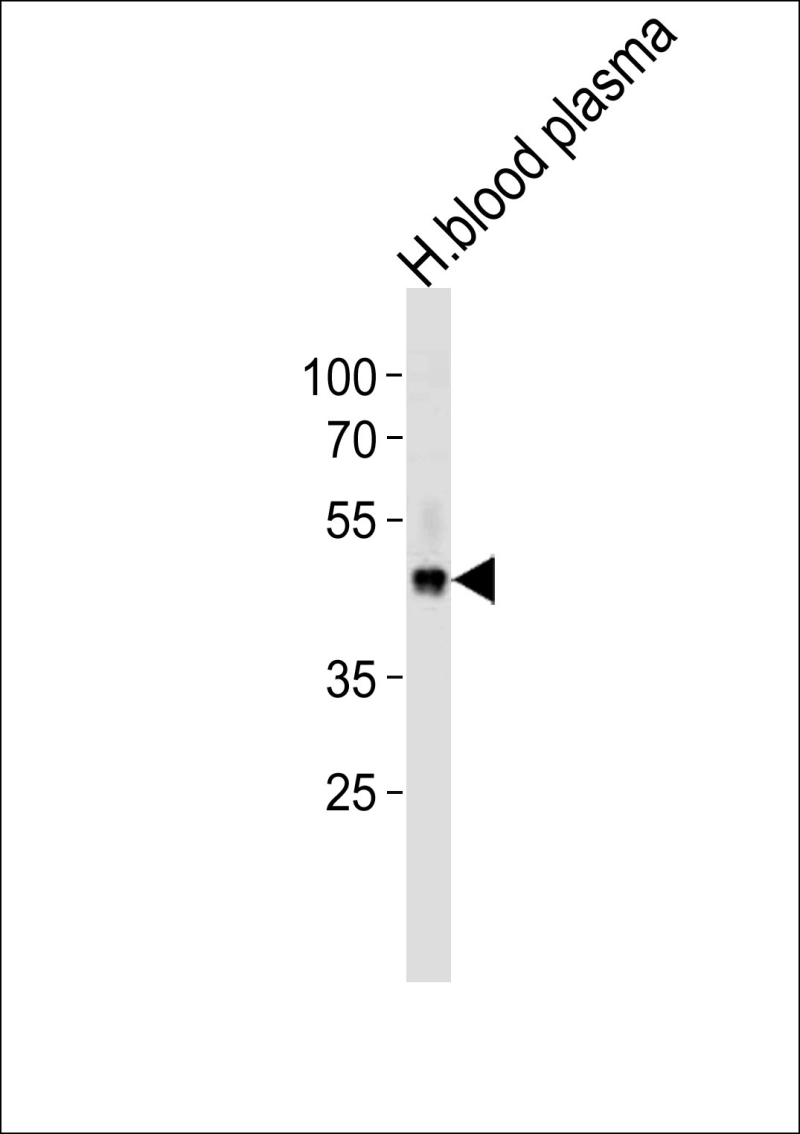


| WB | 1/1000 | Human,Mouse,Rat |
| IF | 咨询技术 | Human,Mouse,Rat |
| IHC | 1/100-1/500 | Human,Mouse,Rat |
| ICC | 技术咨询 | Human,Mouse,Rat |
| FCM | 1/10-1/50 | Human,Mouse,Rat |
| Elisa | 咨询技术 | Human,Mouse,Rat |
| Aliases | Fibrinogen gamma chain, FGG |
| Entrez GeneID | 2266 |
| WB Predicted band size | 51.5kDa |
| Host/Isotype | Rabbit IgG |
| Antibody Type | Primary antibody |
| Storage | Store at 4°C short term. Aliquot and store at -20°C long term. Avoid freeze/thaw cycles. |
| Species Reactivity | Human |
| Immunogen | This FGG antibody is generated from rabbits immunized with a KLH conjugated synthetic peptide between 417-445 amino acids from the C-terminal region of human FGG. |
| Formulation | Purified antibody in PBS with 0.05% sodium azide,1%BSA and 50% glycerol.prepared by Saturated Ammonium Sulfate (SAS) . |
+ +
1. **《Autoantibodies against fibrinogen in autoimmune diseases》**
- 作者:Zhang Y, et al.
- 摘要:研究揭示了FGG(纤维蛋白原γ链)自身抗体在系统性红斑狼疮(SLE)和类风湿关节炎(RA)患者中的高表达,提示其可能通过干扰凝血和炎症反应参与疾病进展。
2. **《Fibrinogen gamma chain as a biomarker for colorectal cancer》**
- 作者:Wang L, et al.
- 摘要:通过抗FGG抗体检测发现,结直肠癌患者血清中FGG片段水平显著升高,可能与肿瘤微环境中的异常凝血和血管生成相关,具有潜在诊断价值。
3. **《Anti-FGG antibodies in thrombotic disorders》**
- 作者:Smith J, et al.
- 摘要:研究发现抗FGG抗体与抗磷脂综合征(APS)患者的血栓形成风险相关,其机制可能涉及纤维蛋白原结构破坏和血小板活化增强。
4. **《FGG antibody-based proteomics in neurodegenerative diseases》**
- 作者:Chen H, et al.
- 摘要:利用抗FGG抗体进行蛋白质组学分析,发现阿尔茨海默病患者脑脊液中FGG异常聚集,可能与血脑屏障损伤和神经炎症通路激活有关。
**Background of FGG Antibodies**
Fibrinogen gamma chain (FGG) antibodies are immunological tools targeting the gamma subunit of fibrinogen, a critical glycoprotein involved in blood coagulation, wound healing, and inflammation. Fibrinogen, composed of three pairs of polypeptide chains (α, β, γ), is synthesized in the liver and circulates in plasma. Upon vascular injury, thrombin cleaves fibrinogen to form fibrin monomers, which polymerize into clots. The gamma chain (encoded by the *FGG* gene) plays a key role in clot stabilization by mediating cross-linking and interactions with platelet receptors (e.g., integrin αIIbβ3) and endothelial cells.
FGG antibodies are widely used in research and diagnostics to study fibrinogen structure, function, and dysregulation. They aid in detecting fibrinogen levels in conditions like congenital fibrinogen disorders (e.g., hypofibrinogenemia), thrombotic diseases, and inflammatory states. Additionally, FGG antibodies are employed in immunoassays, immunohistochemistry, and Western blotting to investigate fibrinogen's role in pathologies such as cardiovascular diseases, Alzheimer's disease (due to fibrin deposition in brain vasculature), and cancer metastasis (via fibrin-mediated cell adhesion).
Recent studies highlight FGG's potential as a biomarker in renal diseases and sepsis, where altered fibrinogen metabolism correlates with disease progression. The development of monoclonal and polyclonal FGG antibodies continues to enhance understanding of fibrinogen biology and its therapeutic targeting in coagulation-related disorders.
×